Gypsy: Trinidad and Tobago safe for Carnival
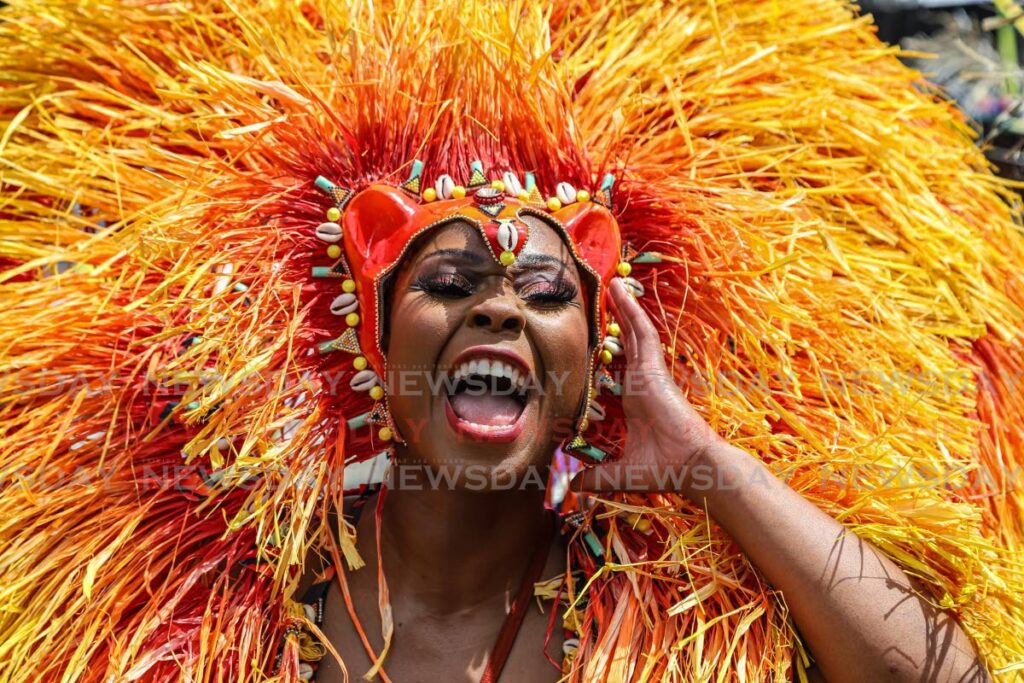
Remember the pods from February’s A Taste of Carnival? Well, they’re back. This time, it’s not to satisfy the requirements of social distancing but an earning opportunity, National Carnival Commission (NCC) chairman Winston “Gypsy” Peters said.
It’s one of the changes the NCC is planning for the “Mother of All Carnivals” in 2023. Carnival Monday and Tuesday will be on February 20 and 21 next year.
Pods – small platforms to hold groups of audience members – were introduced this year to ensure people maintained social distance because of the covid19 pandemic. The NCC said they were successful.
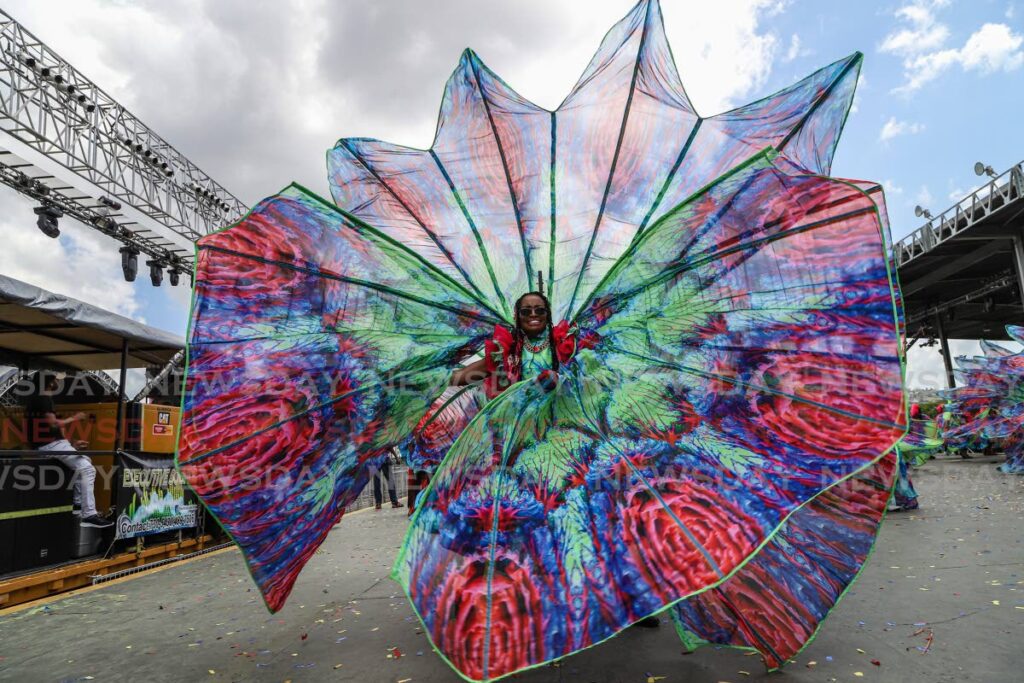
Peters said: “People gravitated to it in such a beautiful way that we would want to put a couple of them. We do have people that come in with ten-15 people.
“We are putting it there solely for economic purposes. There will be people who will come and buy a pod because they want to be there with their people. They are in the event, but have a certain amount of privacy.”
These measures, along with the fact that Carnival has not been held for two years, will bring in even more revenue for Trinidad and Tobago, he estimates.
Taxis, hotels and shops all benefit from the business Carnival generates. This then goes back into doing the country’s business, he said. Carnival usually makes in excess of $1 billion.
“We can see from the things we have been doing from outside of the country, people are anxious to come in.”
As Minister of Tourism, Culture and the Arts Randall Mitchell said at the launch of Carnival on November 5, he reminded, “The hotels are just about booked up, the hotels are filled, and that is a great indication that we have a lot of people coming into the country.”
Many bands are almost sold out, he added, stressing: “The NCC does not make money for itself. The NCC makes money for the country. Carnival does not make money for the NCC. It makes money for the exchequer.”
Peters said while the commission would have liked more than $200 million for the “Mother of All Carnivals,” it will make do with the allocation of $146 million, and some will be spent on promoting Carnival in a big way.
“The more promotion we do with TT’s Carnival, is the more people we get to come in to TT...The foreign money that they bring to the country is spent in every aspect of TT’s life, starting with buying the plane ticket. The Government makes money from that, as strange as it may sound,” he said.
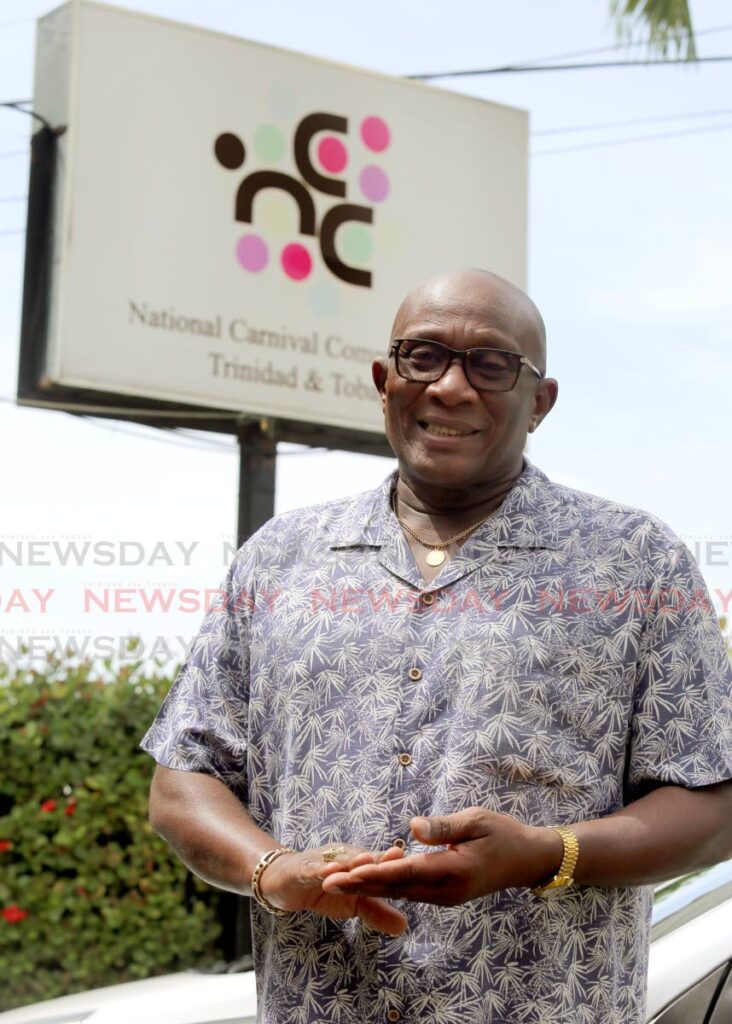
In 2018, the commission set and attained a goal of a ten per cent increase in visitors, he said. However, as it was aiming for a 20 per cent increase, the pandemic happened. It is now aiming to rebuild.
“Thank God, TT’s Carnival is a good brand and we have a good product to work with. We are now working on rebuilding again. Now we are hoping we would have a 15 per cent increase or a 20 per cent increase.”
Crime won’t stop Carnival
While there are concerns about crime, especially with countries like the US issuing advisories against coming to TT, and the commission, too, is concerned, Gypsy said he wanted to be very realistic.
Countries like the US and Jamaica have more crime than TT, and that did not stop people from visiting those spaces.
“TT, around Carnival, has no crime. I dare say we should have Carnival every day, because it prevents crime.
“It might be the people feel sufficiently empowered, sufficiently gratified, and don’t have time with any other nonsense.”
Peters said he was inviting people to come to TT for Carnival, and the country is not as crime-ridden as people think: one murder or maiming is too much, but ordinary people are “very safe.”
He said the national security forces will also be out for Carnival.
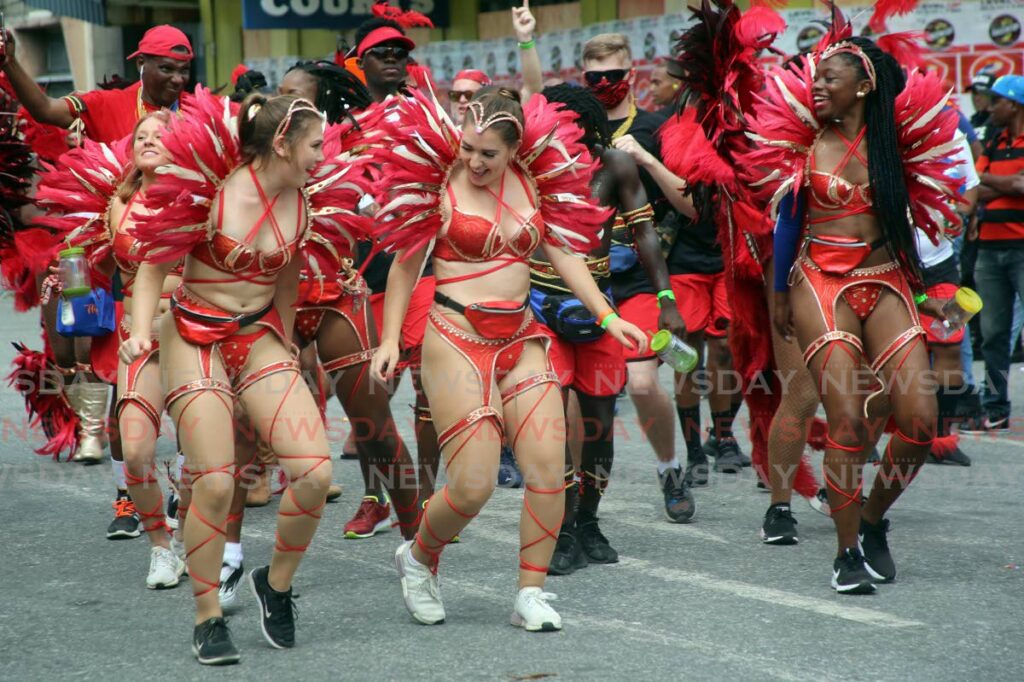
More shows, innovations
Given the increased demand, the NCC will be putting on more shows so there will be more for visitors to do.
Asked about attendance at NCC events as opposed to private events, Peters said they would always be different, as private promoters and organisations did not have the same obligations as the commission: the NCC’s mandate was to ensure Carnival’s artisans are well taken care of, and private organisations did not have to do that.
However, the private sector forms an integral part of the “enhancement of Carnival.”
He added that some of the digital innovations made by the private sector, such as e-ticketing, will also form part of what the NCC offers come next year.
He did not wish to reveal all of them now, but said more will be unveiled as Carnival nears, and the digital innovations will be financially viable for the commission and the country.
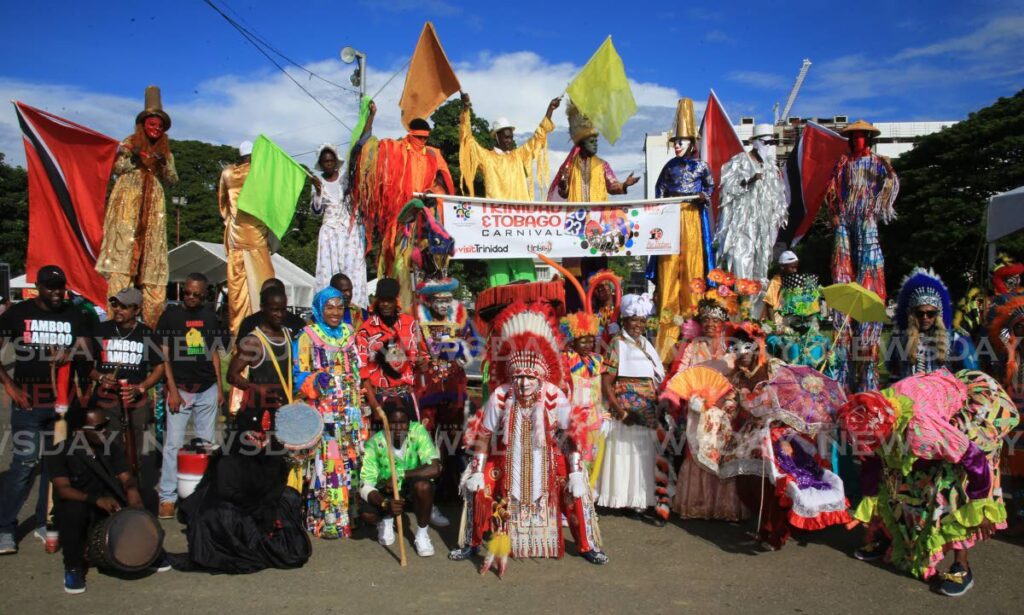
More support for Soca Monarch, Chutney Soca Monarch
The NCC is planning to give more assistance to the International Soca Monarch and Chutney Soca Monarch, as it is from these events that local stars are born, Peters said.
“These are the people that people outside of TT hire when they become whatever they become. Look at Machel Montano and Fay-Ann Lyons-Alvarez today. They bring their foreign exchange back into the country as well. So we support these things.”
He wanted the International Soca Monarch “to return to its glory days.”
He added that discussions with the events’ organisers began during the pandemic and are ongoing.
Peters said it’s still debatable how much is going to be invested, but the NCC would support the events in whatever way it can.
No new route for Carnival 2023
Each year there is discussion about the Carnival route, which has led to developments such as the Socadrome. But come next year, there will no route changes, Peters said.
“There is very little anybody in Trinidad, Tobago or anywhere else could do about the congestion on the road for Carnival in TT. We will do as much as we can – you will never escape congestion.”
He said the roads were largely the same as when his great-grandmother played mas about 100 years ago, and these roads now have “18-, 20- and 30-wheeler trucks” with bands.
The number of people playing mas is also larger now.
While there is not much else it can do about congestion, the NCC has built a larger stage at the Queen’s Park Savannah, as well as supporting the Socadrome.
It would continue to do what it could, but “inevitably it is going to end up with congestion,” he said.
He added this would continue until the country had a dedicated place for Carnival, like a Carnival city – the NCC would love that, but Peters asked where it would be placed, as certain sites would lead to complaints. People would continue to talk about changing the route, he said, but not everyone likes Carnival, and some might find fault with it.
“We are in a catch-22 position in this whole thing, and it is not in the NCC’s purview to say we need a Carnival city. That is something that has to be negotiated with the Government.”
The only place he thinks has the space to build a Carnival city is south Trinidad. Peters said former prime minister Basdeo Panday had plans to do that when he was a junior minister in the Panday administration. The idea was to construct it on lands in Caroni, an idea given to the administration by Machel Montano’s father, Winston Montano.
Peters believes people would have complained about this, as TT is a “funny country” and everything has to be considered, whether religion, race or politics.
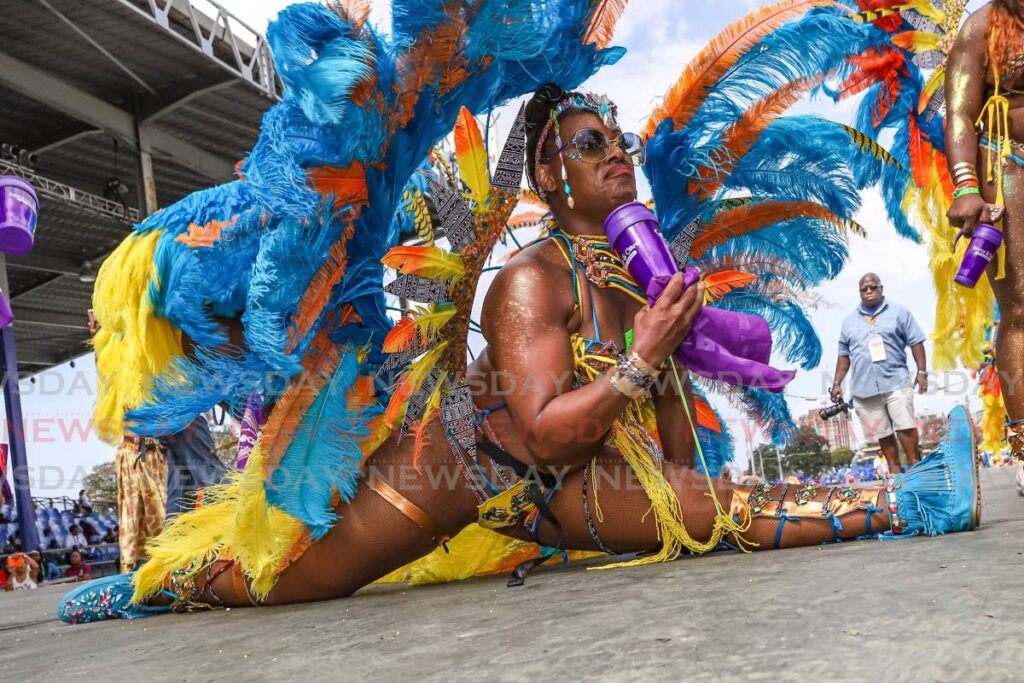
Return of the North Stand
One major development for 2023 is the return of the North Stand. Peters said people have been clamouring for it.
It was removed in 2018 because it was said not to be economically viable.
“The epicentre of Carnival is the Savannah. Any innovation we have to make has to be done there to bring people there. It has to be done in a way it can be monetised.
“We also have to understand not everything that you do there would be monetised. There are things you have to do there for the people, because Carnival is for the people and by the people.
“These are all of the things we have to balance to make our Carnival what we want it to be.”
He said unlike other carnivals across the globe, TT’s Carnival took place throughout the country and each community’s carnival was different.
“The innovations we have to do will culminate one place, but cannot be started (in) one place.”
Innovations also have to be made in the regional carnivals.
“All over the country there are different characters. We have a portrayal Carnival. Everywhere there is a portrayal of something. Other carnivals play mas just to play mas.”
There will be greater allocations for regional carnivals as well as restructuring their committees.
Focus on traditional Carnival
There is also going to be a heavy focus on traditional Carnival next year. Peters said many people do not understand that many tourists visit TT for its regional carnivals and traditional Carnival – a lot of people come to TT and never come to Port of Spain.
For next year’s Carnival Village, the commission will have a "Carnival Character Corner," where there will be photo cut-out boards (life-sized cardboard cut-outs of characters where people can place their face and take a photo).
These photos can be posted on social media and are part of the further digitisation of Carnival.
There will also be also an emphasis on the history of Carnival characters.
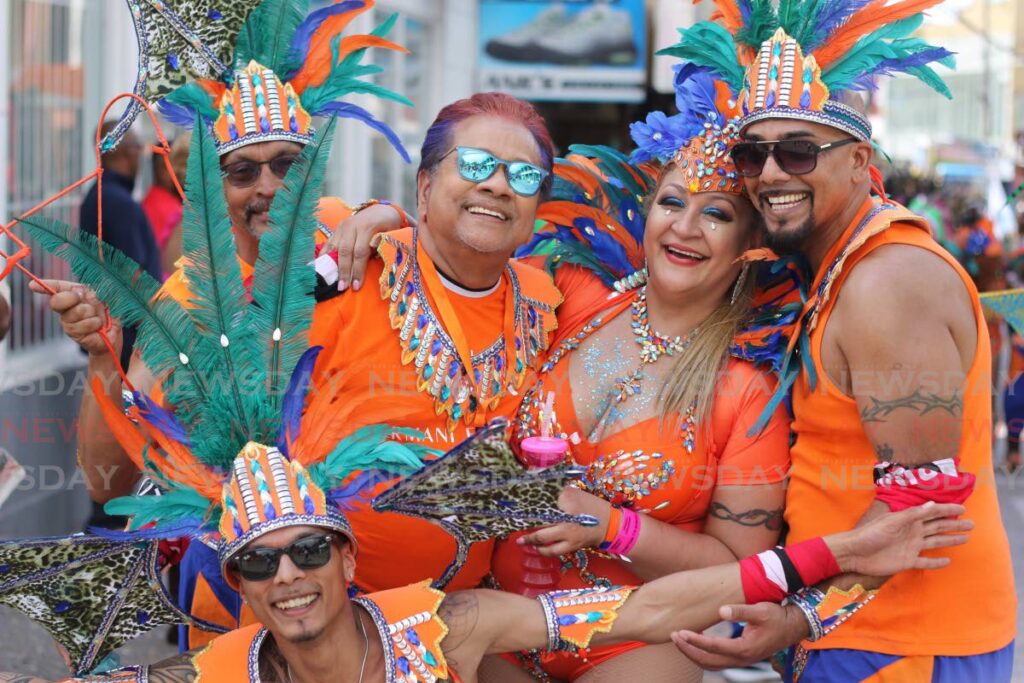
Stop denigrating Carnival
Peters said some people, including religious bodies and groups, denigrated the festival and did not look at the significant benefits it brought to the economy and society.
He said the $146 million spent on Carnival is for and on the people.
“You know how many people in TT, who work absolutely nowhere, depend on the little money they make for the two or three months leading up to Carnival to live for the rest of the year? Carnival is the largest temporary employer in TT.
“The very people we hire take that same money and go to the grocery, pay their children’s school fee, buy clothes and do whatever, and that money ends up right back in the treasury.
“That is the money that sustains a lot of us. Carnival is not just about wine and jam and wine down the place.”
Public education campaign on Carnival’s benefits
After Carnival, the commission will run a public-education campaign about its benefits.
“We have to go and have some public forums and we have to have the relevant people speak on the benefits of Carnival.
“I think it is spoken about in silos, and those silos are usually closed.”
The NCC plans to open those up to the people.
“Carnival is not a bad thing. Carnival is not an evil thing. Carnival has nothing to do with the devil.”
The NCC plans to use money from this year’s allocation and what is made during the Carnival season to drive that campaign.

Comments
"Gypsy: Trinidad and Tobago safe for Carnival"